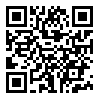Thu, Dec 25, 2025
[Archive]
Volume 2, Issue 3 (11-2020)
Int. J. Ethics Soc 2020, 2(3): 24-36 |
Back to browse issues page
Download citation:
BibTeX | RIS | EndNote | Medlars | ProCite | Reference Manager | RefWorks
Send citation to:



BibTeX | RIS | EndNote | Medlars | ProCite | Reference Manager | RefWorks
Send citation to:
Gholampour M, Pourshafei H, Farasatkhah M, Ayati M. Developing the Moral Codes of Teachers in Islam: Synthesis Research Based on the Roberts’s Model. Int. J. Ethics Soc 2020; 2 (3) : 3
URL: http://ijethics.com/article-1-81-en.html
URL: http://ijethics.com/article-1-81-en.html
1- Ph.D. Student in Curriculum Planning, University of Birjand, Birjand, Iran
2- Dept. of Educational Science, Faculty of Educational Sciences & Psychology, University of Birjand, Birjand, Iran ,h.pourshafei@birjand.ac.ir
3- Dept. of Planning in Higher Education, Institute for Research and Planning in Higher Education, Iran
4- Dept. of Educational Science, Faculty of Educational Sciences & Psychology, University of Birjand, Birjand, Iran
2- Dept. of Educational Science, Faculty of Educational Sciences & Psychology, University of Birjand, Birjand, Iran ,
3- Dept. of Planning in Higher Education, Institute for Research and Planning in Higher Education, Iran
4- Dept. of Educational Science, Faculty of Educational Sciences & Psychology, University of Birjand, Birjand, Iran
Abstract: (3701 Views)
Background: In Islam, expectations are very high in respect to a desirable teacher, especially because the teacher is a model for the next generation, so the purpose of this study is to identify the moral codes of teachers according to the Islamic perspective.
Method: The approach of the present study is qualitative and its method is synthesis research. The research population is all articles (63 articles) that have been presented from 2010 to 2020 in the field of moral components of educators from the perspective of the Holy Quran and the educational life of Imams (A) and the Prophet Mohammad (S). The research sample includes 26 articles, which have been purposefully selected based on thematic monitoring and theoretical data saturation. Research data were collected from qualitative analysis of the studied documents.
Results: The results showed that the moral codes of teachers from the perspective of Islam can be organized in two main dimensions including: contextual dimension (including personality components, insight, religious commitment, socio-political factors and neatness) and professional dimension (including components of professional commitment, knowledge enhancement, professional principles, interactions, content management, teaching and evaluation).
Conclusion: According to the principles of Islam, the components of teachers' professional ethics were organized in two contextual and professional dimensions, so the managers of educational organizations can provide in-service courses for teachers to teach the components of ethics and also design a moral code of ethics taking into account the moral components of teachers in Islam.
Method: The approach of the present study is qualitative and its method is synthesis research. The research population is all articles (63 articles) that have been presented from 2010 to 2020 in the field of moral components of educators from the perspective of the Holy Quran and the educational life of Imams (A) and the Prophet Mohammad (S). The research sample includes 26 articles, which have been purposefully selected based on thematic monitoring and theoretical data saturation. Research data were collected from qualitative analysis of the studied documents.
Results: The results showed that the moral codes of teachers from the perspective of Islam can be organized in two main dimensions including: contextual dimension (including personality components, insight, religious commitment, socio-political factors and neatness) and professional dimension (including components of professional commitment, knowledge enhancement, professional principles, interactions, content management, teaching and evaluation).
Conclusion: According to the principles of Islam, the components of teachers' professional ethics were organized in two contextual and professional dimensions, so the managers of educational organizations can provide in-service courses for teachers to teach the components of ethics and also design a moral code of ethics taking into account the moral components of teachers in Islam.
Article number: 3
Type of Study: Original Article |
Subject:
General
Received: 2020/11/21 | Accepted: 2020/12/28 | Published: 2021/02/15
Received: 2020/11/21 | Accepted: 2020/12/28 | Published: 2021/02/15
Send email to the article author
| Rights and permissions | |
 |
This work is licensed under a Creative Commons Attribution 4.0 International License. |







